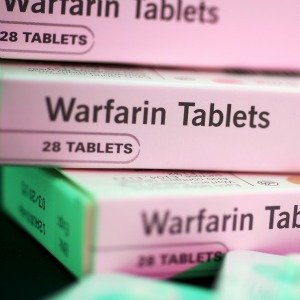GPs have been advised to stop taking responsibility for patients’ anticoagulation management after CCGs refused to commission and fund the service properly, and insisted it was part of GPs’ core contract.
Local GP leaders have advised practices to give CCGs notice that they can no longer continue providing the care because it is not safe to do so, after one offered no payment at all and another offered a ‘pitiful’ fee.
The move follows a disagreement over how anticoagulation services are funded, with some CCGs arguing that the care comes under core GP work.
North and South Essex LMC has now written to GPs in the area to remind practices anticoagulation does not fall under essential services within the GMS/PMS contract.
The LMC is advising GPs who have not been properly commissioned through an enhanced service to serve notice to the CCGs – and is offering assistance to any practices if they come under pressure to continue.
In a letter to practices, seen by Pulse, the LMC explained that some CCGs ‘are now suggesting to practices that provision of anticoagulation is part of practices’ core contract’ and that ‘one CCG is offering a fee, at a pitiable level’ and that another ‘isn’t even suggesting a payment’.
The LMC advised: ‘If you are not commissioned properly to provide the service but have continued to do so, at your own expense, you have the right to serve notice to the CCG – it is for the CCG to make proper arrangements for provision of treatment to patients.’
It added that if practices receive ‘undue pressure from the CCG, please contact the LMC for assistance’.
LMC chief executive Dr Brian Balmer told Pulse the CCGs in question – NHS Basildon and Brentwood CCG and NHS Thurrock CCG – ‘basically don’t want to fund a safe system’.
Dr Balmer said: ‘To take on anticoagulation properly – which should involve testing, monitoring, checking results, adjusting doses – requires proper funding and resources.
‘I don’t want people doing it for free or shabbily because it’s not being funded properly, that’s dangerous.’
He said the GPs should ‘be more concerned about the CQC than the commissioner, because the CQC is going to come up and say, why are you doing this it is not safe?’
Dr Balmer added: ‘They should give them notice they are going to stop and get the commissioner to tell the patient where the service is now being provided – and if the commissioner doesn’t, personally I would send people straight to hospital.’
Dr Bob Morley, GPC policy lead on contracts and regulation, said it was ‘completely erroneous’ for CCGs to ‘state that anticoagulation services fall under GMS/PMS essential services’.
Dr Morley added: ‘My advice to the practices affected by their CCG neglecting their responsibilities to commission fit for purpose an adequately funded anticoagulation enhanced services would be to refer all patients requiring anticoagulation to a secondary care services – patient safety must be the priority.’
Rahul Chaudhari, head of primary care at NHS Thurrock CCG, said in a statement to Pulse that the CCG ‘is aware of the current issues with anticoagulation therapy management’ and that the ‘CCG’s medicines management and commissioning teams are working with our GP colleagues and Basildon Hospital to improve this pathway’.
NHS Basildon and Brentwood CCG declined to comment.
Pulse October survey
Take our July 2025 survey to potentially win £1.000 worth of tokens













